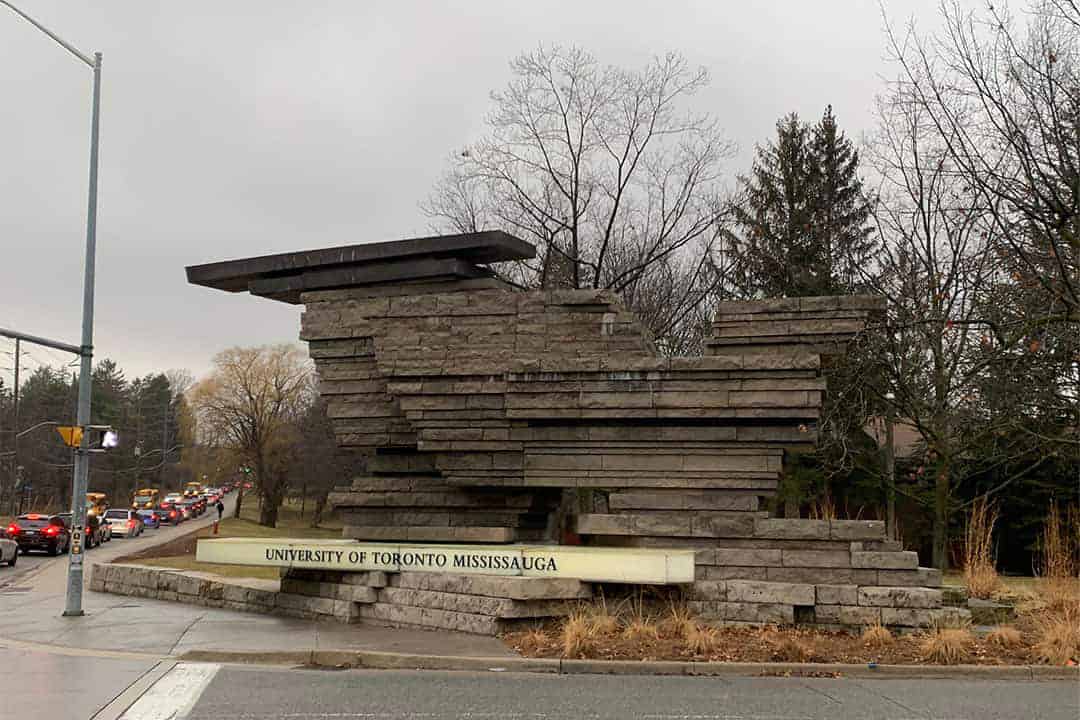UTM is at a very important inflection point. I, along with several department chairs, directors and deans, am working on the next UTM Academic Plan, which is a five-year high-level plan impacting everything pertaining to academics on campus. The Plan must address a wide range of issues: from student success, to the future of teaching, to working with artificial intelligence (AI).
In a post-COVID world, UTM is adapting to a unique set of circumstances. A rapidly changing academic environment, coupled with concerns surrounding student success, means that the future of employability and the value of a U of T degree are all on the line.
The Academic Plan Task Force was made to create UTM’s next academic plan, which influences most aspects of academics on campus and elements of student life. It is used to inform the creation of most other policies and procedures that different academic units, departments, and services offer.
During the first meeting of the Academic Plan Task Force in November 2023, UTM Vice-Principal, Academic and Dean Nicholas Rule stated that the membership of the task force was very carefully decided. However, I couldn’t help but notice I was the only student at the table. Each of the other members were members of the dean’s office; department chairs; directors of campus units, such as Information & Instructional Technology Services; and the interim chief librarian. This was also the case in 2017, when UTM made its previous and currently operational academic plan.
As the Academic Plan impacts all the over 19,500 members of the UTM community, including students, staff, faculty, plus 69,000 alumni, these members are supposed to be factored into the plan’s decision-making process. Being the only student representative for both undergraduate and graduate students, however, my very large constituency proportionally receives the least representation on the task force.
The Academic Plan is more than just a set of guidelines. It provides the blueprint for many important decisions that impact students, from policies to practices, funding to research. This plan sets the university’s vision for the future.
With this, I have to say I am worried. I worry about how the institutions designed to represent students have dropped the ball and aren’t involving themselves with this work. I worry about the changes I see and hear professors and departments making. I worry about the future of our university, and the representation of student concerns. Something this important should not be left up to just one student representative.
The very first thing I brought to the task force was my concern over AI in the classroom, how it will impact future students in a post-COVID world, and how professors are reacting to it now — such as by increasingly relying on exams and using tests instead of assignments as means of assessing students.
While these changes in classrooms may seem small and inconsequential, they are anything but. I have heard directly from students about how some changes they have noticed in classrooms are hurting their chances of success.
So, why should you, the reader, care? My hope is that through working on this plan, we take a healthier approach to academics: one that helps students who are struggling succeed and one that ensures that no student is left behind in any aspect, whether it is through ensuring in-class assessments and exams are fair in their content, creating equitable grading policies, or working to eliminate false academic offence allegations and change key administrative policies. There is a lot to tackle in this plan, and many students have reached out to me and raised concerns regarding what they want to see and how the university may address their needs.
My role on this task force is to represent all students. That was my intention from day one and will be until the plan is complete. As your voice at the table, your collective needs and wants are what I will bring to it. As one student, however, I rely on your input to make sure your concerns are heard by everyone deciding what this plan will look like. This is an opportunity for students to band together and show university administrators what our priorities are.
Whether you are in your first or last year, or an alum, I end with one very simple request.
Take the time to participate in this process and help ensure that this plan reflects the best interests of students and all UTM community members. Your voice matters. Send me an email, or message me on Instagram (@ehab_james). Stop and talk to me if you see me on campus. Talk to your friends about what they want to see. Reach out to your clubs, which I have all invited to present directly to our task force.
Our window of opportunity to bring real change is closing. Find the time to make sure this plan is done right because it decides your future, the future of your alma mater, and the future of tens of thousands of students who will feel the effects of this plan after us.
Ehab James is a third-year undergraduate student, double majoring in Political Science and Sociology at UTM. Ehab is a member of the UTM Campus Council, UTM Academic Affairs Committee, UTM Nominating Committee, and the UTM Academic Plan Task Force.



No comments to display.